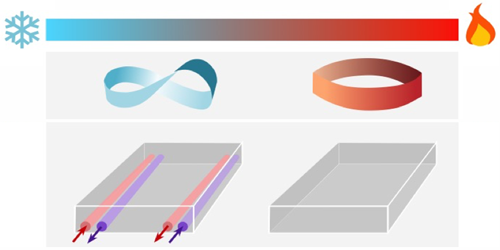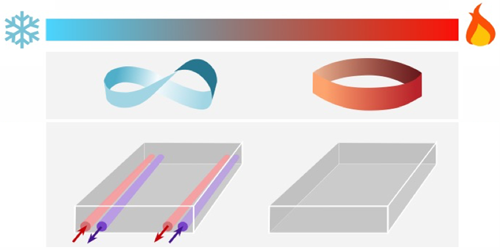Topological Insulators Feel the Heat
Pop into a condensed-matter physics conference today, and you’ll find many talks on topological insulators. Not surprisingly, for they are fascinating materials and might offer a path towards fault-tolerant quantum computing and high-performance electronics. Now, Bartomeu Monserrat and David Vanderbilt from Rutgers University, New Jersey, predict that these materials can turn into normal insulators at high temperature. This surprising finding underscores the importance of considering the role of temperature in future searches for and applications of topological insulators.
The duo calculated the effect of increased temperature on the electronic band structure of topological insulators from the family of materials that includes bismuth selenide and antimony selenide. They used density-functional theory (DFT), the method of choice for calculating the electronic structure of solids and surfaces. They found that increased temperature decreases the band gap of the materials and suppresses their topological conducting surface states, with thermal expansion of the lattice and coupling between electrons and phonons playing equal parts in the process.
These results are at variance with a previous (non-DFT) theoretical study, which found that high temperatures favor topological phases. But that study did not factor in the effect of thermal expansion. What’s more, Monserrat and Vanderbilt derived a phase diagram for antimony selenide that details the temperature and pressure at which the transition to the normal insulating state might occur and hinder potential applications.
This research is published in Physical Review Letters.
–Ana Lopes
Ana Lopes is a Senior Editor of Physics.





